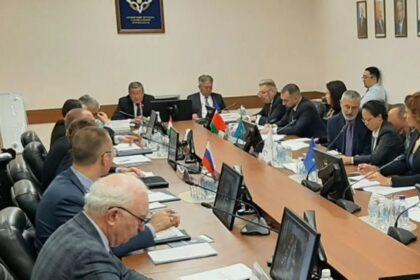By Dor Mohammad Dadkhwah
Since the Taliban’s return to power in Afghanistan, the group has consistently demonstrated its intolerance toward the country’s ethnic and religious minorities through oppressive policies. Among the communities subjected to these actions are Afghanistan’s Ismailis, a peaceful and industrious minority who, over the past three years, have endured systematic humiliation, forced renunciations of their faith, and accusations of apostasy. Despite their peaceful nature, they face severe threats and persecution under the Taliban regime.
The Taliban’s oppressive policies in Afghanistan are manifested through two primary strategies. First, ethnic suppression in matters of governance a pattern clearly reflected in the group’s literature, speeches, and actions, as noted by their opponents. Second, religious coercion, a tactic that has received insufficient scrutiny. Of particular concern is the pressure exerted on Shia Muslims, especially the Ismaili community, which has been systematically targeted without adequate international attention or condemnation.
A significant portion of the Ismaili population resides in Badakhshan and the northeastern regions of Afghanistan. These communities have faced relentless persecution under the Taliban’s rule. In Badakhshan’s border districts, such as Wakhan and Ishkashim, the Taliban have aggressively implemented their authoritarian policies against the Ismailis. Shortly after regaining power, the group sought to alter the Ismailis’ religious practices, exploiting poverty and deprivation as tools of coercion. One of their initial moves involved the public conversion of an Ismaili individual in Ishkashim to Sunni Islam through the ceremonial recitation of the Islamic declaration of faith a deeply symbolic act aimed at undermining the community’s identity, despite Ismailis themselves being adherents of Islam.
Following this, the Taliban intensified their anti-Ismaili propaganda through their “Promotion of Virtue” department, escalating pressures on the community. This campaign led to widespread violence, including targeted killings. One alarming instance occurred in Wakhan, where a young, innocent Ismaili boy was brutally murdered. International organizations remained silent, failing to condemn or respond to such atrocities a silence that emboldens further abuses. The Taliban’s anti-Ismaili policies have also extended to the establishment of Sunni-style religious schools in Ismaili-majority border areas, underscoring their sectarian agenda. Furthermore, the group imposed bans on intermarriage between Sunni men and Ismaili women, permitting such unions only if the male was Sunni. Conversely, Sunni women were strictly forbidden from marrying Ismaili men a calculated policy aimed at systematically curtailing Ismaili cultural and religious practices.
In their latest wave of oppression, the Taliban have used social media to disseminate videos showing military officials publicly denouncing the Ismaili faith and engaging in open acts of defamation against the community. The Taliban’s suppressive measures against Badakhshan’s Ismailis continue to escalate, pushing the community to the brink of existential crisis. Without urgent intervention from the international community, the Ismaili faith in Badakhshan risks facing irreparable damage, enduring profound challenges, and ultimately, the threat of erasure.






